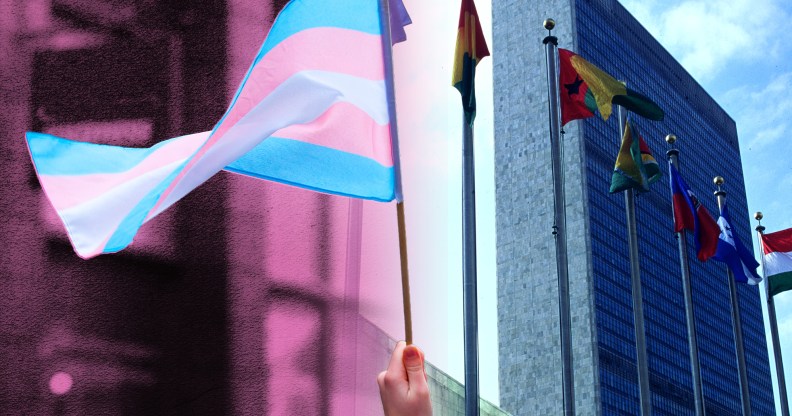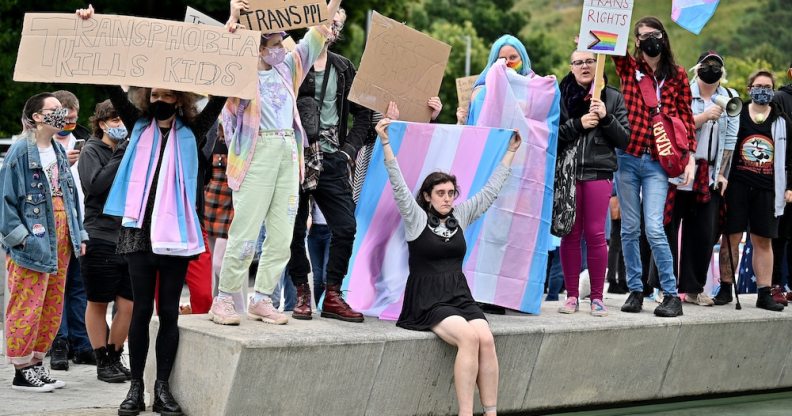UN human rights expert backs Scottish government’s vital gender law reforms

Trans flags in Scotland. (Credit: Getty)

Trans activists hold a demonstration in support of self-identification of sex in the Scottish census. (Getty/ Jeff J Mitchell)
One of the UN’s leading voices on gender identity and LGBTQ+ rights has endorsed Scotland’s Gender Recognition Act reforms, which will be voted on next week.
Victor Madrigal-Borloz, a UN Independent Expert on Sexual Orientation and Gender Identity, said: “Legal recognition of gender identity is a human right and self-identification is the appropriate standard for it.”
The bill passed the first stage of voting with 88 Scottish politicians voting in favour, and only 33 voting against it.
The legislation amends the Gender Recognition Act 2004 to introduce a new process to obtain gender recognition certificates in Scotland, which would remove barriers for trans people to change their gender identity on official documents.
Madrigal-Borloz outlined legal mandates for the changes in both the UN Human Rights resolutions and the European Convention on Human Rights, both of which ban discrimination based on gender identity.
The UN has also recognized the failure to provide accessible ways to change your legal gender as discrimination under these bodies.
In his official report presented to the UN Human Rights Council about changes to the Gender Recognition Act in Scotland, he stated: “Within the United Nations Human Rights System, there is consensus on the imperative of legal recognition of gender identity and on the related standard of self-identification.
“It is my opinion that the Bill brings the Scottish system closer to conformity with those standards and, therefore, it is an act of compliance with obligations incumbent upon the State under international human rights law.”
Madrigal-Borloz also noted he was worried that because the gender recognition bill is still being debated – which is being pushed by anti-trans activists – as well as misinformation about the bill designed to turn the public against the trans community.
“I am concerned that these efforts may respond to erroneous information based on the stigma and prejudice that have long permeated efforts to deny legal recognition to persons based on their gender identity, and thereby deny them equal access to services and the full enjoyment of their human rights.
“I have also observed exclusionary narratives in the public discourse surrounding the consideration
of the Bill, and against trans persons more generally.”



